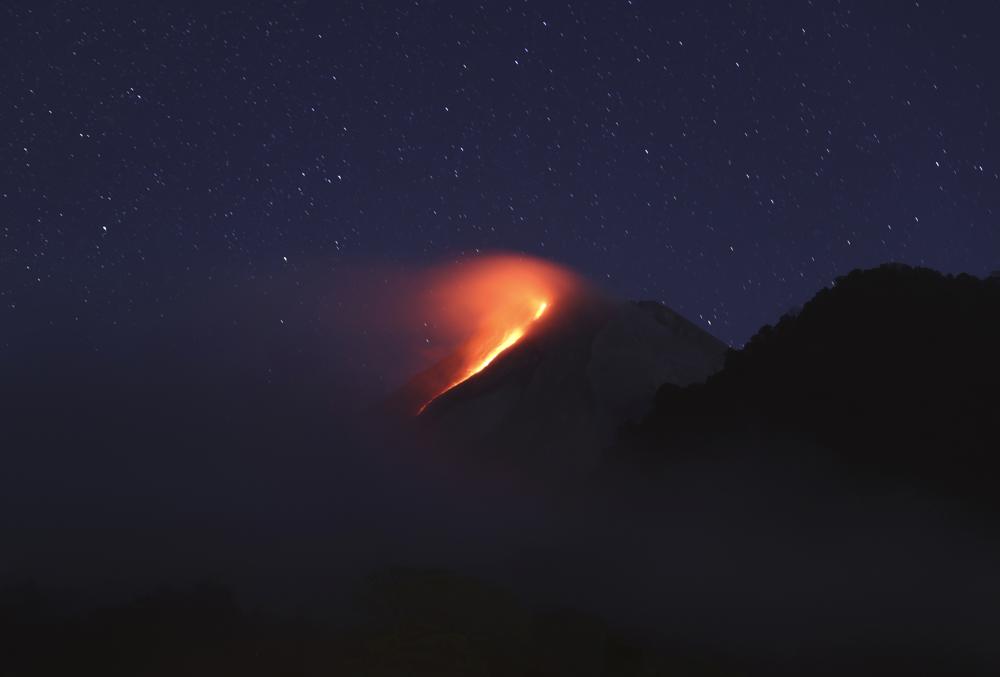

Indonesia’s most active volcano erupted Monday with its biggest lava flow in months, sending a river of lava and searing gas clouds flowing 3.5 kilometers (more than 2 miles) down its slopes on the densely populated island of Java.
The rumbling sound could be heard several kilometers (miles) away as Mount Merapi erupted, sending hot ash 600 meters (nearly 2,000 feet) into the sky. Ash blanketed nearby towns, but long-established evacuation orders are in place near the volcano, and no casualties were reported.
It was Merapi’s biggest lava flow since authorities raised its danger level last November, said Hanik Humaida, the head of Yogyakarta’s Volcanology and Geological Hazard Mitigation Center.
She said the lava dome just below Merapi’s southwest rim and the lava dome in the crater both have been active since the end of July. The southwest rim dome volume was estimated at 1.8 million cubic meters (66.9 million cubic feet) and about 3 meters (9.8 feet) tall before partially collapsing Monday morning, sending pyroclastic flows traveled fast down the southwest flank at least twice.
Smaller pyroclastic flows of searing gas and lava traveled up to 1.5 kilometers (a mile) southwest at least twice more during the day.
The 2,968-meter (9,737-foot) peak is near Yogyakarta, an ancient city of several hundred thousand people embedded in a large metro area on the island of Java. The city is a center of Javanese culture and a seat of royal dynasties going back centuries.
Merapi’s alert status has been at the second-highest of four levels since it began erupting last November, and Indonesia’s Volcanology and Geological Hazard Mitigation Center has not raised it despite the past week’s increased volcanic activity. The four levels describe eruption activity as normal, minor, moderate, or major.
People are advised to stay 5 kilometers (3.1 miles) from the crater’s mouth and to beware of the peril of lava, the agency said.
Ash from the eruption blanketed several villages and nearby towns, Humaida said. Cloudy weather obscured views of the peak.
Mount Merapi is the most active of more than 120 active volcanoes in Indonesia and has repeatedly erupted with lava and gas clouds recently.
Authorities in November had evacuated nearly 2,000 people living on the fertile slopes of the mountain in Magelang and Sleman districts and about 550 more people in January, but most have since returned. Merapi’s last major eruption in 2010 killed 347 people and caused the evacuation of 20,000 villagers.
Indonesia, an archipelago of 270 million people, is prone to earthquakes and volcanic activity because it sits along the Pacific “Ring of Fire,” a horseshoe-shaped series of seismic fault lines around the ocean.